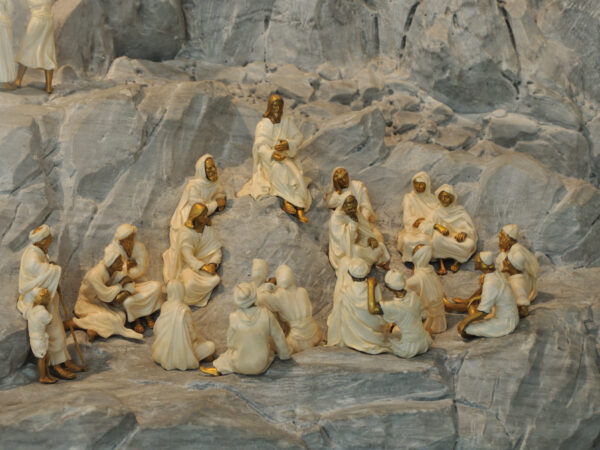
The text of 1 Kings 8 is a conversation, not a monologue. For those of us who look to Scripture to guide our understanding and action in our own context, this text invites us to wrestle, conversationally, with the embedded ideologies of our own political leaders’ projects. Names matter in politics. But humble leadership, for the good of all, ought to matter more.

Although the Apostle Paul’s discussion of our struggle against rulers, authorities, cosmic powers, and spiritual forces of evil in heavenly places may strike many readers as a relic of a primitive cosmological outlook, it is fiercely relevant in our own day, where white supremacy functions as just such a power. Ta-Nehisi Coates has spoken of the illusions and lies undergirding the American Dream and, with the Apostle, calls us to awake to and struggle against the forces and ideologies that bind and enthral us.
“Baptism…now saves you…through the resurrection of Jesus Christ, who has gone into heaven, and is at the right hand of God, with angels, authorities, and powers made subject to him.” (1 Peter 3:22)
Aside from winning awards for the number of clauses in a single sentence (and the Greek sentence actually begins before verse 21), today’s epistle reading makes big claims! God has made all powers subject to Jesus Christ! But “all” is a big term, especially in a world that doesn’t always feel subject to God. And so the question that lingers today is, “What did the author of 1 Peter mean by “angels, authorities, and powers?”
